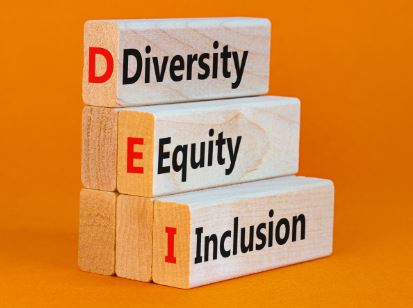What Is DEIA? Understanding Diversity, Equity, Inclusion, and Accessibility Beyond Hiring Practices

In recent years, DEIA—Diversity, Equity, Inclusion, and Accessibility—has become a widely discussed concept in workplaces, education, and government institutions. However, there are many misconceptions about what DEIA truly represents, with some mistakenly believing it is solely about hiring people of color or enforcing quotas. In reality, DEIA is a broad, strategic approach designed to create fair opportunities, remove systemic barriers, and foster environments where all individuals can thrive—regardless of race, gender, disability, or background.
Breaking Down DEIA: What Each Element Means
- Diversity – Ensuring a variety of perspectives, backgrounds, and experiences are represented in an organization. This includes, but is not limited to, race, ethnicity, gender, age, disability status, socioeconomic background, and thought diversity.
- Equity – Recognizing that different people face different challenges and ensuring that everyone has access to the same opportunities. Unlike equality (which assumes everyone starts from the same place), equity involves removing barriers that have historically excluded certain groups.
- Inclusion – Creating an environment where all individuals feel valued, respected, and empowered. Inclusion goes beyond just hiring a diverse workforce—it means ensuring all voices are heard and that people have a sense of belonging within an organization.
- Accessibility – Ensuring equal access to resources, spaces, and opportunities, particularly for people with disabilities. This can include physical accommodations, assistive technology, and inclusive policies that allow everyone to participate fully.
DEIA Is Not About Excluding Any Group
A common misconception about DEIA is that it prioritizes one group over another, particularly in hiring decisions. However, DEIA is not about exclusion—it is about creating a system that benefits everyone. For example:
- DEIA initiatives do not mean hiring unqualified candidates. Instead, they ensure that qualified candidates from all backgrounds have an equal opportunity to compete for roles.
- DEIA extends beyond race. It includes efforts to support veterans, people with disabilities, rural communities, and individuals from economically disadvantaged backgrounds.
- DEIA benefits businesses. Studies from McKinsey & Company and Harvard Business Review show that organizations with diverse teams are more innovative, profitable, and adaptable in competitive markets.
Why DEIA Matters in the Workplace and Beyond
Organizations that embrace DEIA principles foster stronger work cultures, increase employee engagement, and drive better business outcomes. Employees perform better when they feel valued, and companies that prioritize inclusive decision-making see higher retention rates and creativity.
Final Thoughts
DEIA is not about giving unfair advantages—it’s about leveling the playing field so that talent, not background, determines success. When implemented effectively, DEIA helps build stronger organizations, more competitive businesses, and a more just society for everyone.




